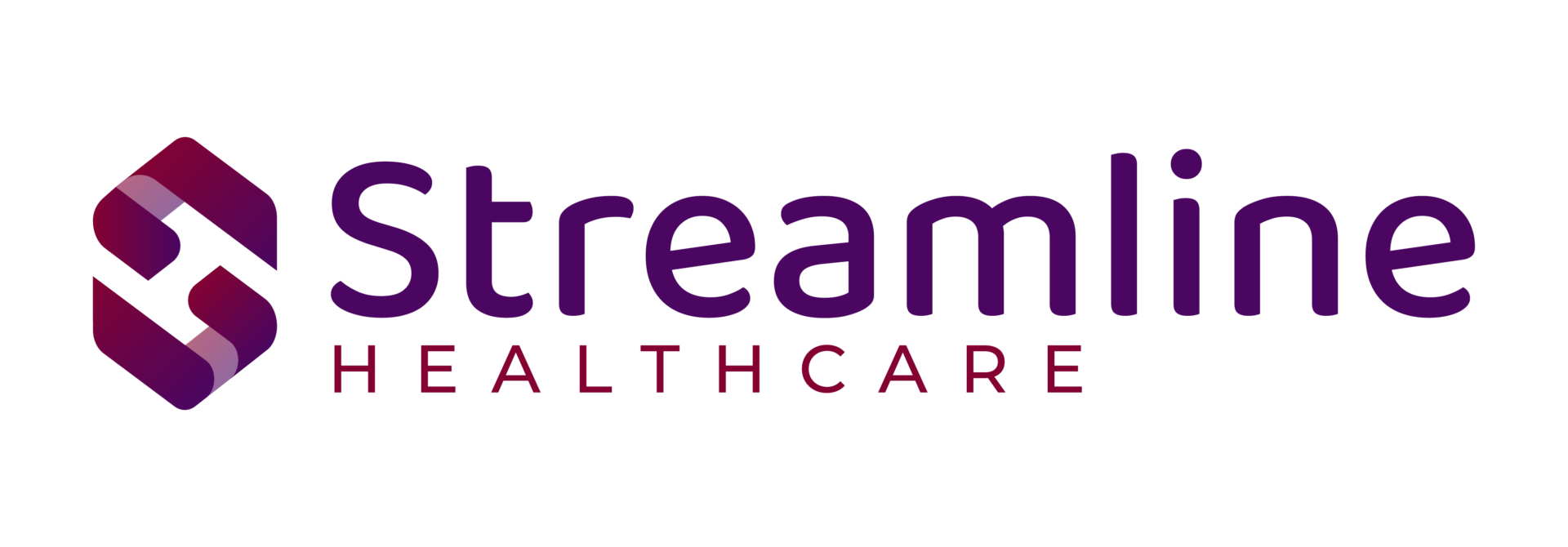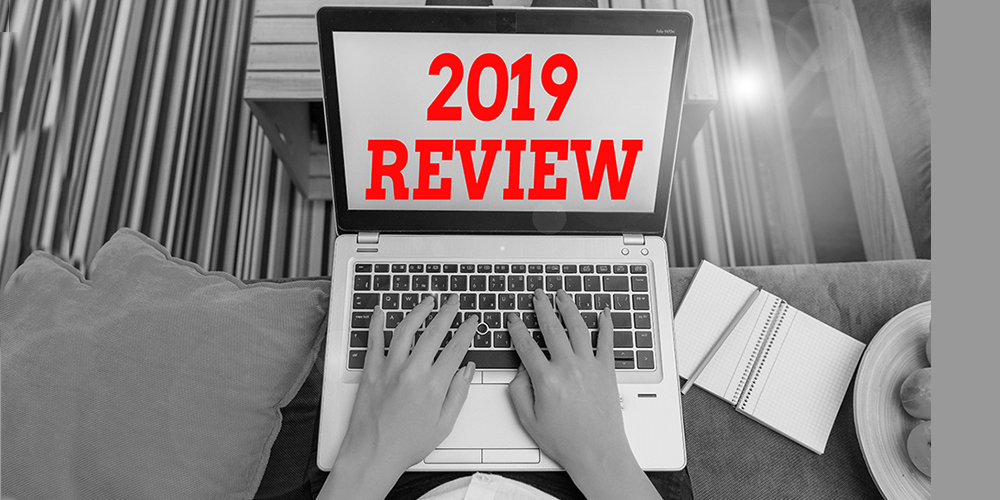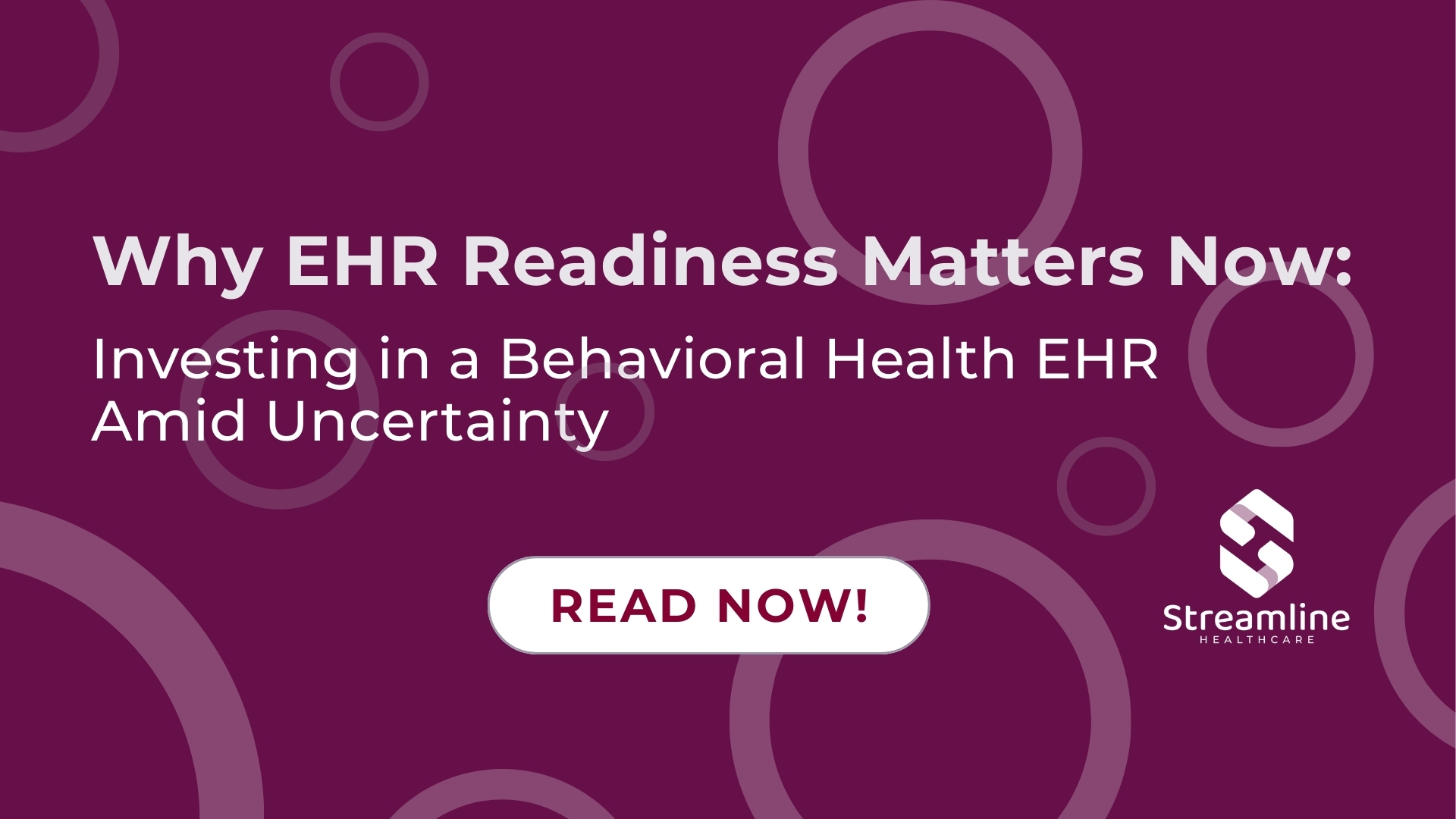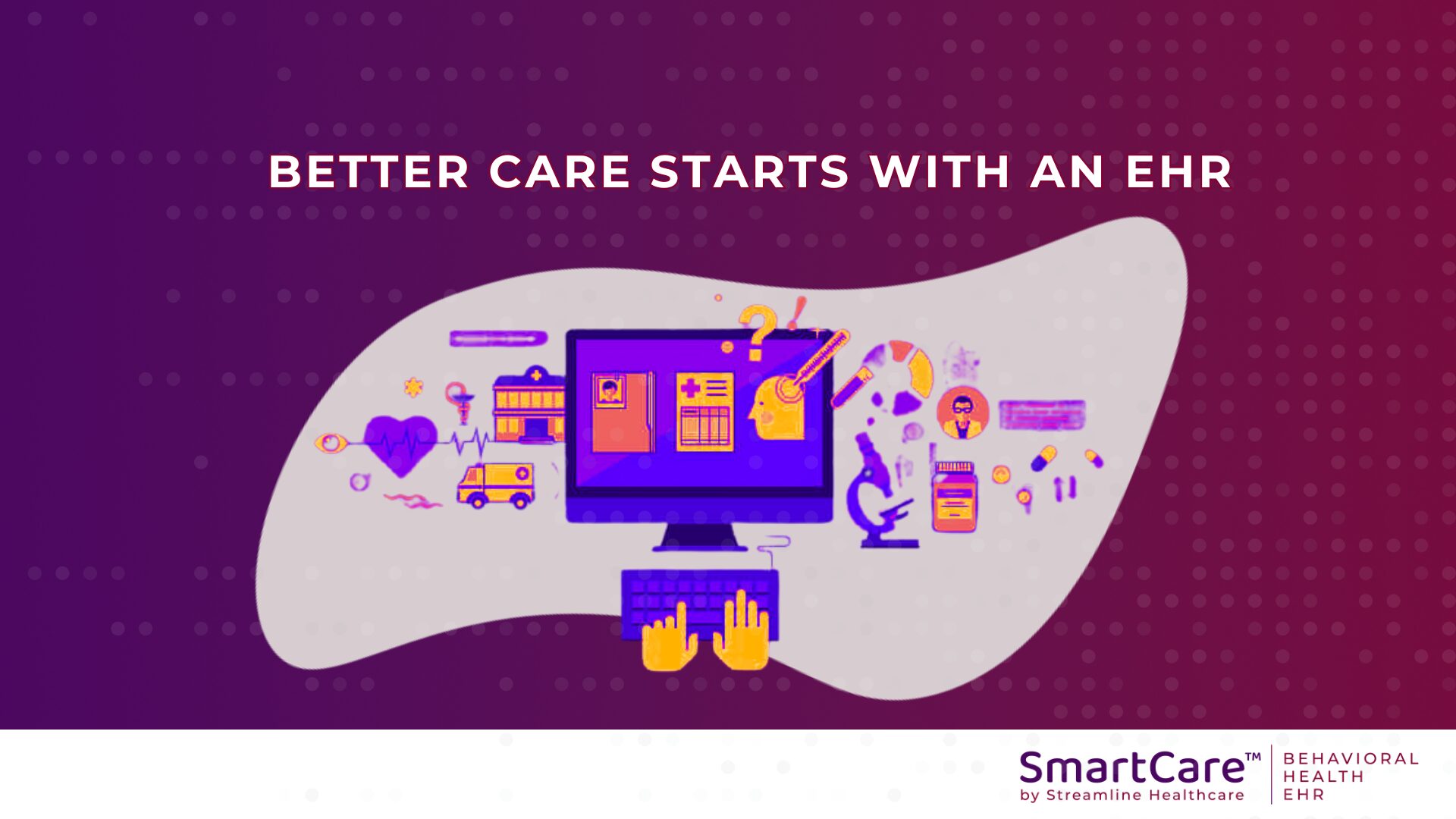The healthcare industry has experienced dynamic changes in 2019, resulting in many advances for running a practice or facility with efficiency and enhanced tools for communication. From changes in legislation to key trends, Streamline Healthcare Solutions (Streamline) has explored the major breakthroughs and movements to offer a comprehensive look at the year in review.
Legislation Changes
Importance of Certified Community Behavioral Health Clinics
The U.S. Senate unanimously approved an amendment to H.R. 3253, the Empowering Beneficiaries, Ensuring Access, and Strengthening Accountability Act, which extends the CCBHCs program that operates in eight states. Certified Community Behavioral Health Clinics are intended to provide a range of mental health and substance use disorder treatment services, and the unanimous support demonstrates their continuing importance in the mental wellness field.
Grants for Health Information Exchanges
The state of Montana received a $19 million grant to fund their Health Information Exchange. HIEs streamline communication and provide instant access to patient health data, showing the value of making information available through easily accessible online portals.
Connected Care
The Federal Communications Commission unanimously voted to move forward with plans for a $100 million pilot program to promote telemedicine services. Telemedicine is a game-changer in the industry, offering virtual communication portals and access to patients across the globe. It can reach anyone with internet access and can benefit those who have rarely or never gotten proper medical and mental health treatment. With the potential to revolutionize how providers and clients interact, a pilot program will allow insightful feedback and monitoring options to make Telehealth even more viable.
Health Crisis in Washington
The Washington State Legislature set aside roughly $280 million for mental health programs for the next two years, and a growing group of stakeholders is helping to set the priorities and maximize the outcome. Acknowledging that their mental health facilities are outdated and deteriorating, Washington is experiencing a profound shift in how and where their mental health clients are treated, to ensure that they receive state of the art treatments in better facilities.
Trends
Behavioral Health Cases Double
As more people require treatment for mental health and substance abuse issues, it’s essential that organizations are equipped with an EHR platform that will integrate and support all types of care models. Behavioral health diagnoses have ballooned over the past decade, with an increase of 108%. As more clients seek help, providers must be prepared for the influx of information and individual needs, in order to provide the best treatment for each unique person. This is a trend that is here to stay.
Value-Based Care
Under the value-based care model, providers are rewarded based on the health of their clients. They strive to help individuals reduce the negative impacts of chronic diseases and their occurrences. The model leads to lower costs for clients, reduced health risks, increased satisfaction, and better overall health, offering a new way to offer treatment in a team approach.
Care and Data Coordination
Studies show as many as 40% of all patients seen in primary care settings have a mental illness, but often go untreated due to a lack of time or resources. Integration between platforms allows clients to receive coordinated care under one roof. It also lets data be easily accessible through EHR technology. This upgraded care coordination leads to enriched client experience, with a measurable impact on improving access to mental health care.
Data coordination also significantly reduces medical errors by increasing accuracy and record keeping. The potential for prescribing errors is greatly lessened by allowing clinicians to send medication requests online. Clients are better able to take their health journeys into their own hands by accessing their data and profiles. Accessible treatment sources and data coordination allow anyone and everyone to receive proper help through reliable communication channels. Information technology improvements have drastically altered the search for reference information and data mining, saving time and money, and simultaneously providing better treatment potential.
User-Friendly Technology
Since 2003, Streamline Healthcare Solutions has been delivering superior web-based software for healthcare organizations. Our software creates meaningful technology that enhances and transforms our client’s businesses while improving the quality of care for all stakeholders. With an increasing demand for technology and mobile access, online portals are becoming essential and more efficient.
Data Storage and Security
Sharing confidential medical information requires meticulous care and thorough education. Having completed the Meaningful Use 2015 Certification, Streamline has an efficient application program interface that connects and shares information quickly and effectively. Yet as breaches and data exposure becomes more common, there is growing concern surrounding data security. Clients want their services at their fingertips, and providers must take their private information as seriously as they do their own. It’s imperative for healthcare providers to understand the possible risks associated with data sharing, and take the appropriate steps to safeguard and monitor their online security at all times.
The changes in the mental healthcare industry are happening daily. Each piece of legislation and new trend is leading towards a better experience and stronger treatment for clients. With proper adaptations through EHR technology, companies today are equipped to move into the future with insight and success.




